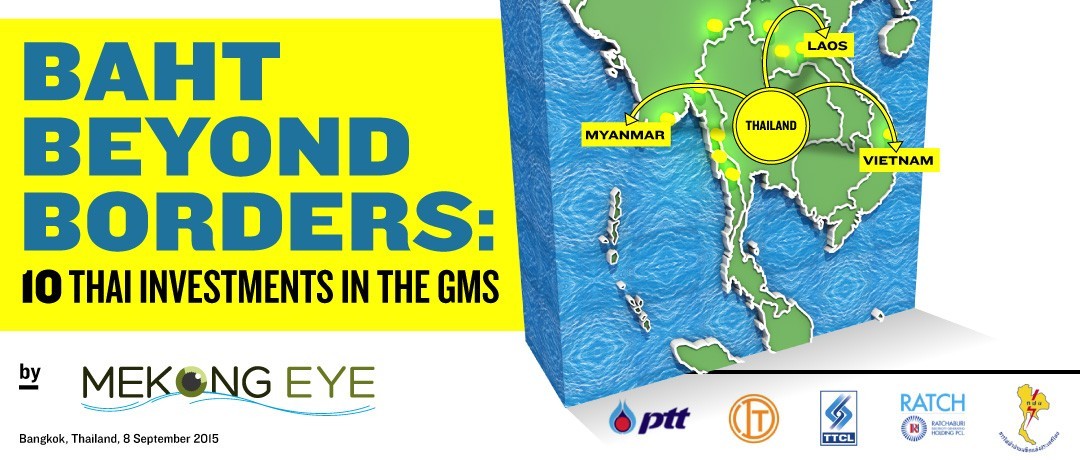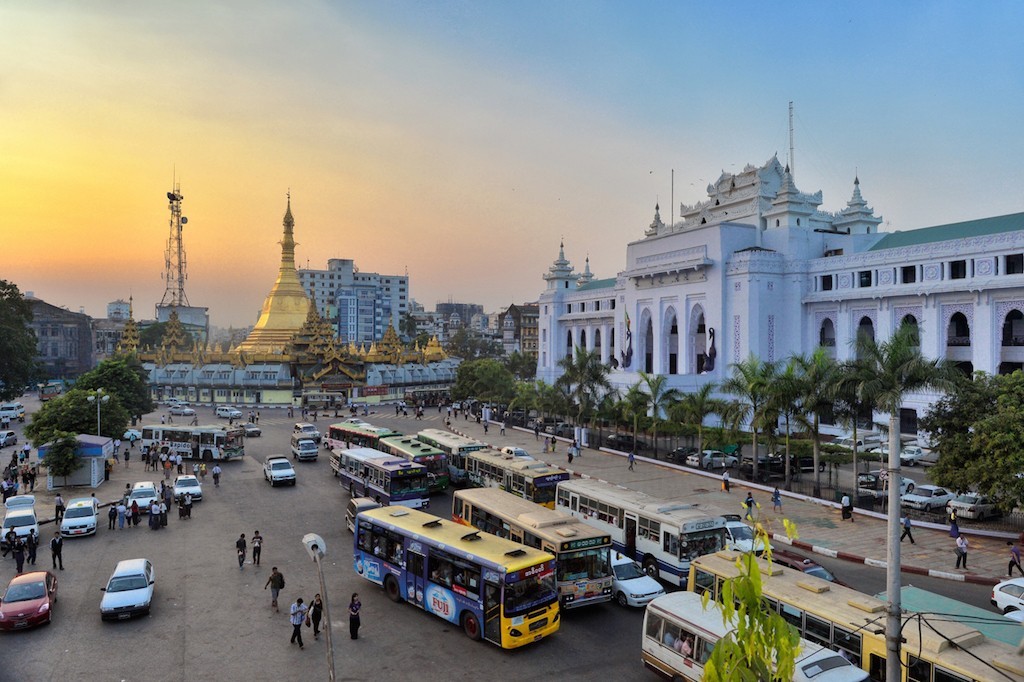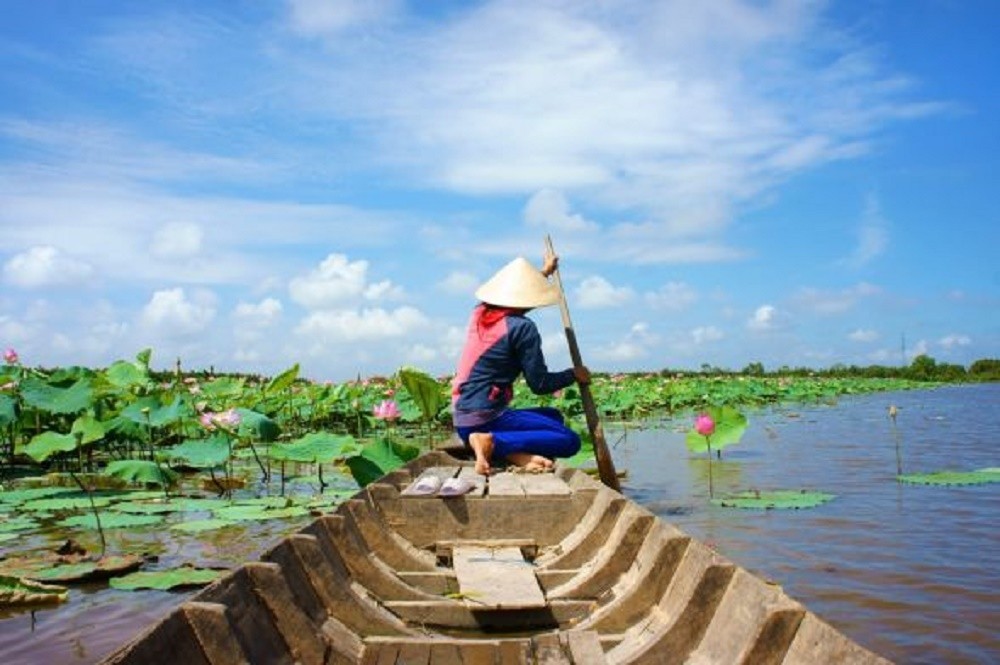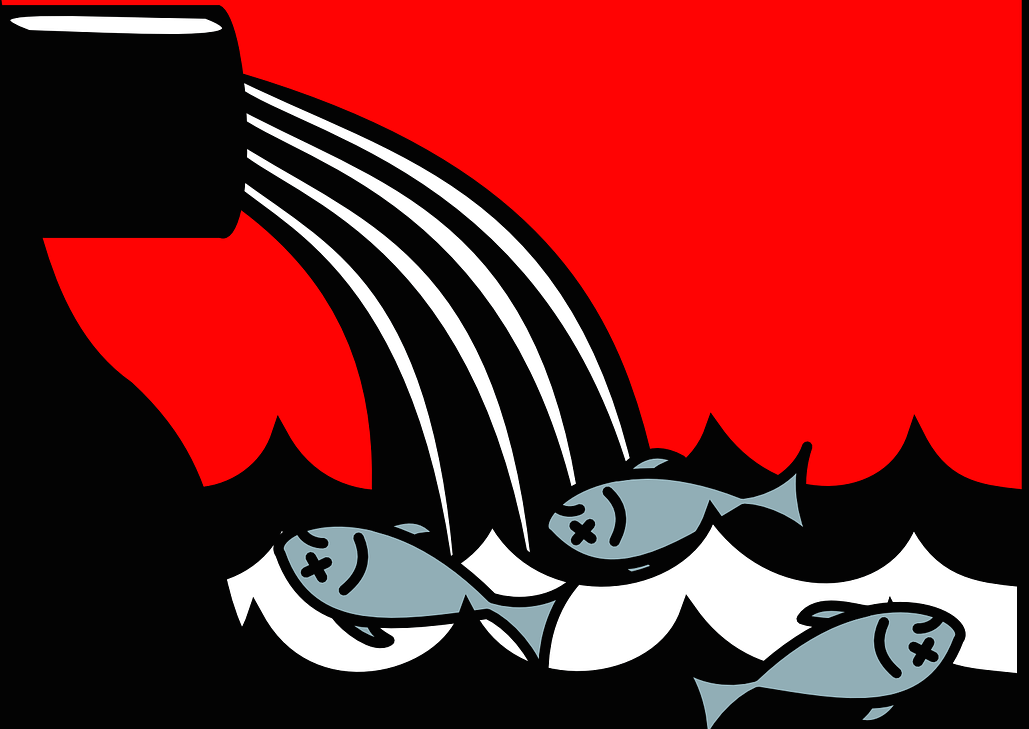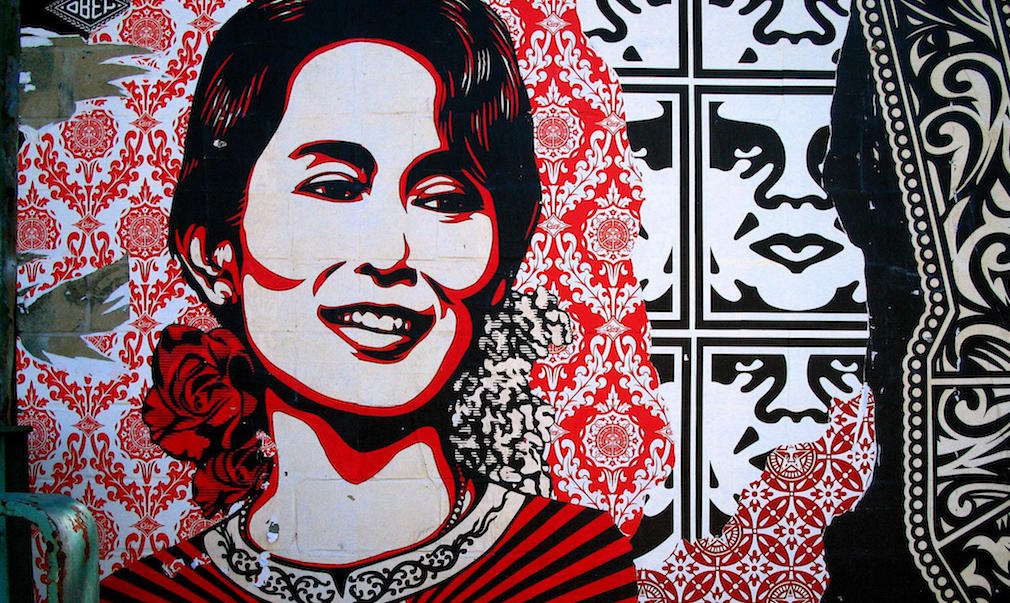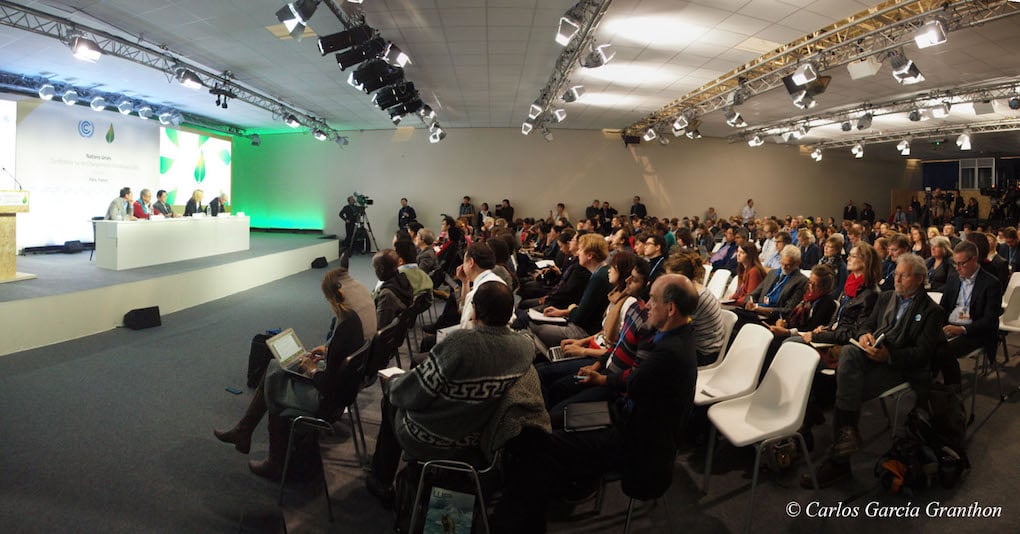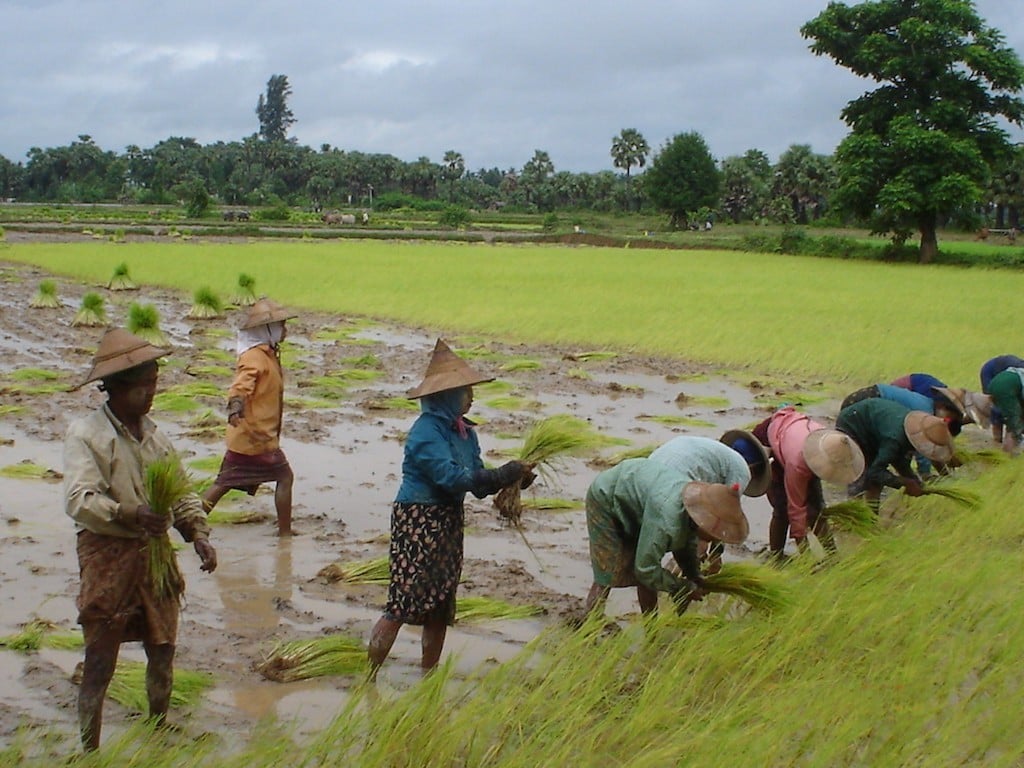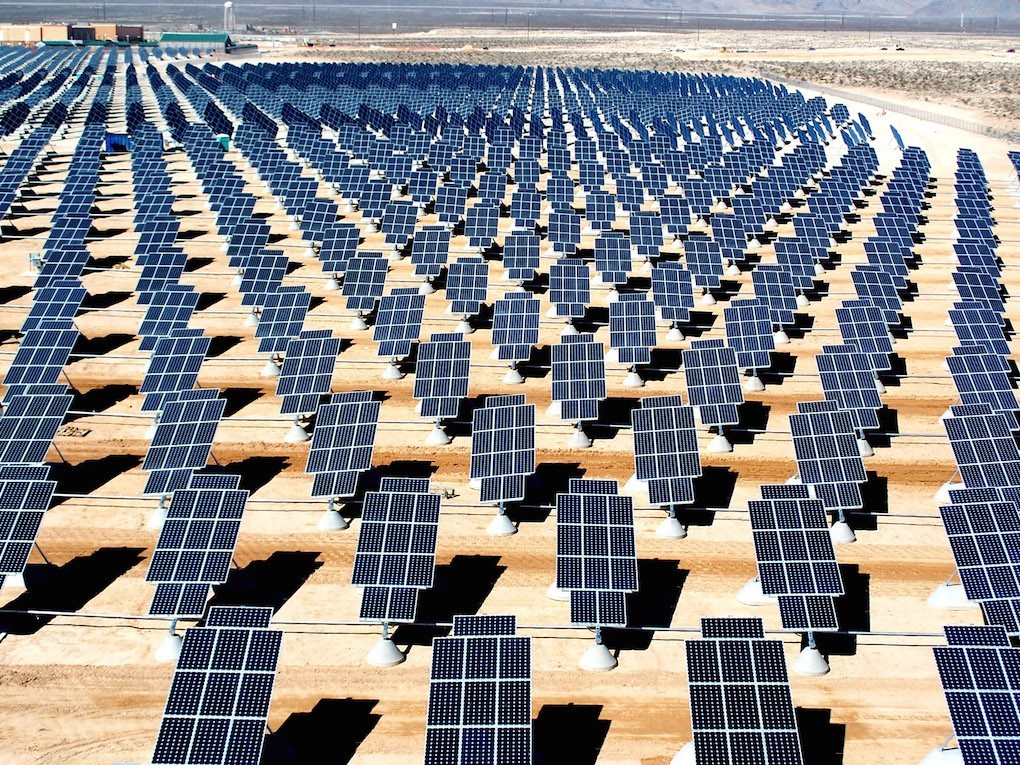With public opposition to major infrastructure projects a growing concern, and willing partners in neighboring countries eager to pick of the slack, Thailand’s industrialists are fanning out in all directions. Energy projects dominate the mix, including coal, gas and hydropower. As a result, it’s the Electricity Generating Authority of Thailand driving much of the activity.
Category: Region
Selected environmental stories from media outlets in the Mekong region and beyond.
Myanmar expects entry of more US businesses
Representatives of US companies have become frequent guests at the Myanmar Federation of Chamber of Commerce and Industry these days as they explore business opportunities in the long-isolated country.
The visits have gathered pace since the National League for Democracy (NLD) won the election and the power transition from military rule appeared to be going smoothly, Win Aung, president of the federation, said last week.
“I strongly believe that Myanmar-US economic relations will strengthen in the next government’s term.
Saltwater Advances in the Mekong Delta
This week that the Mekong Delta, Vietnam’s main rice growing region, is being gradually contaminated by salt water moving inland due to the ongoing drought, which in turn is caused mainly by El Nino. Already, 200 000 tons of rice have been damaged. Relief will come with the end of El Nino, which should bring more freshwater to the delta.
Industrial zones polluting water with chemicals
Many industrial zones nationwide failed to operate their waste treatment systems properly and have dumped large amounts of industrial waste with high levels of toxic chemicals into the environment, according to Dr Le Trinh, from Viet Nam Environmental Science and Development Institute.
Trinh said industrial waste and wastewater were major contributors to environmental pollution.
Industrial and urban wastewater has caused serious water pollution in many channels in HCM City, including the Tham Luong, Ba Bo and An Ha channels, according to the institute.
Charter writers agree to spell out community rights
The Constitution Drafting Committee has agreed to spell out in the new draft communities’ right to sue state agencies and the requirement for environmental and health impact assessments for all large projects following numerous complaints.
The move came after people in the provinces, environmental activists and academics had criticised the omissions of community rights provisions present in Section of 67 of the 2007 charter.
Charter writers explained earlier they had taken a different approach to protecting the rights. Instead of putting them in the Rights and Liberties chapter like in the previous constitution, they included them by implication in the State Duties chapter. While they claimed the effects were the same, activists and communities were not comfortable with the change.
Drought-hit Thailand taps Mekong water
Facing a severe drought this year, Thailand is pumping water from the Mekong river to irrigate farms inland. It also wants to divert larger volumes, despite warnings from environmentalists about the downstream impact.
Pumping is now taking place in north-eastern Thailand, a parched region separated from Laos by the Mekong. In Nong Khai province, where a sluice gate between the Mekong and its tributary located within Thailand is now closed, temporary pumps are extracting water from the river at a rate of 15 cu m per second to water crops.
Myitsone dam is as much Aung San Suu Kyi’s problem as Beijing’s
In September 2011, Myanmar President Thein Sein announced that construction of China’s largest hydroelectric project in Southeast Asia — the $3.6 billion-plus Myitsone dam in northern Myanmar — would be suspended for the duration of his term.
This came as a shock to China, which had believed that Myanmar was securely within the Sinocentric orbit, if not quite a “client state.”
Post-Paris: Journalism Climate in Bangkok Remains Mild
As the enthusiastic narrative from the Paris climate change agreement of last month continues, conversations with Thai journalists offer a cautionary data point that may resonate beyond this society of sixty million.
“Other than the words climate change, the fundamental issues behind it, actions to address it have really not been much of a concern to the Thai people,” says Paritta Wangkiat of Bangkok Post, the only Thai journalist to cover the Paris talks. “At best it’s a trendy slogan to deploy when discussing unusual weather patterns. But there is a serious lack of commitment from policy makers and society including media organizations to take part in the global effort to reduce CO2.
Some 6,000 journalists worldwide applied for accreditation, and facilities were available to service 3,000 at one time, but not many from the Mekong region?
Salween Farmers Demand Government Accountability for Land Confiscation
Participants at a land rights seminar in Mon State urged the incoming National League for Democracy (NLD)-led government to address past practices of land confiscation with a special court dedicated to the issue.
Mon State’s Salween Eastern Farmers and Land Users Seminar was held in Moulmein for two days, from February 14-15, with over 90 representatives participating from five Mon State townships and one Tenasserim Division township, all selected for their locations east of the Salween River. Also present were Moulmein-based farmers’ organizations and civil society groups focused on land rights.
Gunkul studies feasibility of infrastructure fund for expansion
Renewable-energy company Gunkul Engineering is conducting a feasibility study on setting up an infrastructure fund to improve cash flow and control its debt as it expects to require more money to expand both locally and abroad.
Gunkul president Sopacha Dhumrongpiyawut said the company had appointed Siam Commercial Bank as financial adviser for the proposed infrastructure fund, which should be around Bt4 billion to Bt5 billion in size.
The infrastructure fund would ensure that the company had sufficient cash flow to expand, and it might not increase capital in the short term.


